SUMMARY
This is AI generated summarization, which may have errors. For context, always refer to the full article.

MANILA, Philippines – How can you help make facts go viral?
A student journalist from the Polytechnic University of the Philippines (PUP), and students from St. Louis University (SLU) in Baguio, showed the way when they produced the winning entries in the recent #FactsFirstPH video contest.
Getting creative with promoting media and information literacy (MIL) among their peers, more than 25 students and professionals across the Philippines made one to two-minute videos sharing tips about fact-checking and responsible social media usage for the contest organized by anti-disinformation initiative #FactsFirstPH.
Launched during MovePH’s MIL series in January, the video contest aimed to amplify verified sources of information and promote ways for people can help curb the spread of false information. To join the contest, participants featured an existing fact check, or shared tips on how to combat disinformation and practice media literacy in their short creative videos posted on Tiktok, Facebook, Twitter, and Youtube.
Through their video entries, students, teachers, and other professionals shared tips on how to identify whether the information they’re reading is false, and warned people about the harmful impacts of disinformation on our day to day lives. Others, meanwhile, created explainers in a fight back to false narratives and historical distortion.
The three winners were Rinoa Kate Dela Cruz, a student from PUP, at first place, and SLU Baguio students Phoeboa Buen and April Anne Nemenzo, at second and third respectively. Dela Cruz earned P10,000, Buen P7,000, while Nemenzo P5,000.
These video entries were reviewed by Rappler’s Production team, Rappler’s Head of Creative Design, Tiktok content creator Mighty Magulang, as well as select members of Rappler+.
Addressing historical distortion
Given the attempts to distort history, Dela Cruz shared how students can take a stand to correct historical distortion through her explainer video debunking the myths and false narratives of the Martial Law era.
False claims remain rampant in communities, especially when major influencers such as vloggers, artists, and national institutions have been tapped to deliberately mislead public perception. In the education sector, some school textbooks have been found lacking in thorough discussions of history, which leave communities vulnerable to online disinformation.
As a student journalist, Dela Cruz emphasized the role of students in strengthening collective growth and academic freedom in schools and institutions. One way they can do this is by highlighting the importance of history and how it continues to impact us up to this day.
“I recognize the vital role of history in shaping our present and future. By examining and understanding past events, individuals can learn valuable lessons that can help them avoid repeating the same mistakes in the future,” Dela Cruz said.
Being a member of Explained PH, a youth-driven community publication, Dela Cruz shared that she has witnessed the adverse attacks against advocates and truth-tellers. She especially cited how red-tagging and targeting by trolls have led people to doubt the credibility of journalists.
Given the challenges, she hopes to instill media literacy as a social responsibility in order to help build trust in media in communities.
“I strive to teach people to restore their trust in media institutions by demonstrating my continuous commitment to journalistic ethics and standards, countering the spread of false information and propaganda, and reducing the influence of partisan or biased reporting,” Dela Cruz said.
Ways on how to mitigate information disorder
Another way to rebuild trust in facts is by teaching citizens how to mitigate the existing information disorder in digital spaces. This was shared by second-placer Buen, along with her schoolmates Jodi David, Roshane Dominguez, and Hannah Tamayo.
In their video, they urged viewers to practice a person-to-person approach in fact-checking by dealing and engaging our personal circles offline, and doing so with empathy. Moreover, they shared the importance of familiarizing oneself with the information disorder – consisting of disinformation, misinformation, and malinformation – and its possible impacts on public perception.
“Fact-checking is important and should be the top priority when reading information online. We as citizens must be responsible for what to share online and for being informed in times of disinformation,” Buen said.
Being responsible online
Part of media literacy isn’t just about fact-checking; it’s also about learning how to be a responsible digital citizen. This can include knowing how to protect yourself from not only false information and propaganda but also online scams and digital fraud.
Nemenzo’s third place winning video was on Rappler’s fact check of an ad of an unregistered product, which misrepresented an endorsement by Kris Aquino.
@annenemenzo MAY PAKPAK MAN ANG BALITA DAPAT ITONG IFACT-FACT CHECK MUNA. I-share mo sa comment section kung nais mong sagutin ang tanong sa dulo ng video na ito! Para sa kabuong fact check article na isinulat ng rappler sundan ang link na ito: https://www.rappler.com/newsbreak/fact-check/unregistered-product-advertisment-misrepresents-endorsement-kris-aquino/ #FactsFirstPH #FactsFirst #InformationDisorder #factchecking ♬ original sound – anne nemenzo
In the video, Nemenzo warned people to be wary when buying things online, especially from sellers that may possibly spout misleading claims or use altered photos to promote their products. One of the ways that people can avoid this is to always double check and ensure if the product and the seller are legitimate.
“They [social media users] need to become aware of the danger of online buying…. Sellers should be responsible for what they sell, and should be taken accountable for what they post online,” Nemenzo said.
“It’s cliche to say but ‘think before you click’ will still be a helpful and smart choice until now, because the last thing you would do is to know when to trust and have the knowledge to decipher facts from false information,” Nemenzo added.
These are just some of the entries made by students and professionals for the #FactsFirstPH video contest.
Emphasizing everyone’s role in promoting facts, Dela Cruz urged people to do their part in practicing responsible digital citizenship – be it producing fact-checks, joining groups advocating for truth, engaging our circles, or even as simple as being mindful of what we share online.
“We can create a culture where people are encouraged to verify the information they receive and evaluate its accuracy and reliability. I hope to inspire people of all ages to take the first step in fighting for the truth and eliminating the wrongdoings of falsified [information],” Dela Cruz added. – Rappler.com
Interested in media literacy and fact-checking? Follow the #FactsFirstPH movements page for more updates. Email us at move.ph@rappler.com for partnership inquiries and other collaboration opportunities.
Add a comment
How does this make you feel?
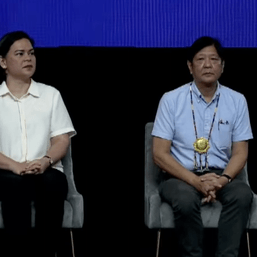
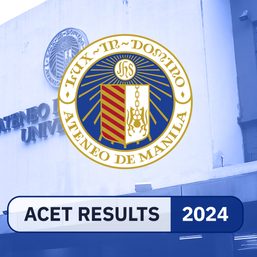
![[Time Trowel] Mentorship matters](https://www.rappler.com/tachyon/2024/04/mentorship-matters.jpg?resize=257%2C257&crop_strategy=attention)
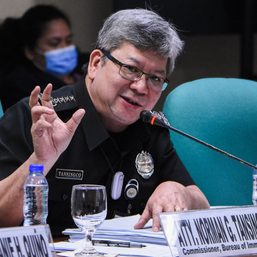


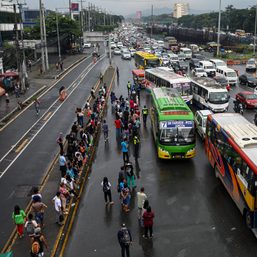
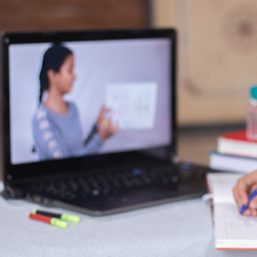
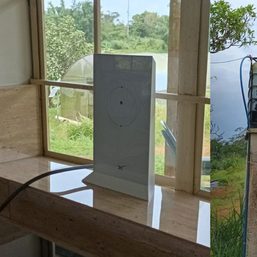
![[New School] Regrets and redemption: Notes of a pandemic-time, graduating college senior](https://www.rappler.com/tachyon/2023/05/regrets-redemptions-notes-may-28-2023.jpg?resize=257%2C257&crop=448px%2C0px%2C1080px%2C1080px)
There are no comments yet. Add your comment to start the conversation.